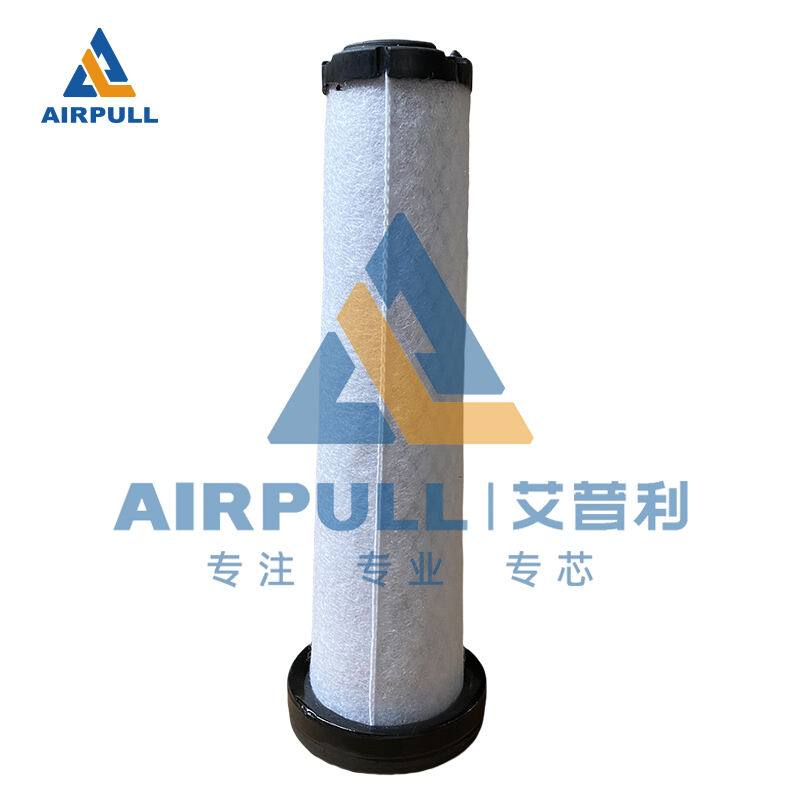Understanding the Critical Role of Filtration in Air Compression Systems
Air compressor filters serve as the first line of defense in maintaining the quality and efficiency of compressed air systems. These essential components protect both the compressor machinery and downstream equipment by removing contaminants, moisture, and particulates from the air stream. Without proper filtration, compressed air systems can suffer from reduced performance, increased maintenance costs, and potential equipment failure.
The importance of maintaining air compressor filters extends beyond basic system protection. Clean, properly filtered compressed air is crucial for various industrial applications, from manufacturing processes to sensitive medical equipment. Understanding how to properly maintain these filtration systems can significantly impact operational efficiency and equipment longevity.
Components of an Effective Filtration System
Primary Filtration Elements
The primary filtration system typically consists of multiple stages designed to progressively remove different types of contaminants. The intake air compressor filter captures larger particles before they enter the compression chamber. This initial stage of filtration prevents debris from damaging internal components and ensures optimal air quality from the start of the compression process.
Secondary filters often include coalescent elements that remove oil aerosols and finer particulates. These specialized filters can capture particles as small as 0.01 microns, ensuring the compressed air meets stringent quality standards required for sensitive applications.
Advanced Filtration Technologies
Modern air compressor filter systems often incorporate advanced materials and designs to enhance filtration efficiency. High-efficiency filter media, such as activated carbon and molecular sieves, can remove vapor-phase contaminants and odors. These sophisticated filtering elements provide superior protection while minimizing pressure drop across the system.
Smart filtration systems may include differential pressure indicators and electronic monitoring capabilities, allowing operators to track filter performance and schedule maintenance based on actual usage rather than time intervals alone.
Essential Maintenance Procedures
Regular Inspection Protocols
Implementing a systematic inspection routine is crucial for maintaining air compressor filter effectiveness. Visual inspections should be performed weekly, checking for signs of damage, excessive contamination, or unusual pressure drops. Maintenance personnel should document filter conditions and track performance metrics to identify potential issues before they become critical.
Pressure differential readings across filters provide valuable information about filter loading and replacement needs. When pressure drop exceeds manufacturer specifications, typically around 8-10 PSI, filter elements should be evaluated for replacement to maintain system efficiency.
Cleaning and Replacement Guidelines
While some air compressor filter elements are designed for cleaning and reuse, many modern filters are disposable and must be replaced according to manufacturer schedules. Cleaning reusable filters requires careful attention to proper techniques and cleaning agents to avoid damage to the filter media.
Replacement intervals vary based on operating conditions, environment, and air quality requirements. Industrial environments with high levels of airborne contaminants may require more frequent filter changes, while cleaner environments might extend replacement intervals.
Optimizing Filter Performance
Environmental Considerations
The operating environment significantly impacts air compressor filter performance. Positioning air intakes away from sources of contamination and maintaining clean surroundings can extend filter life and improve system efficiency. Climate-controlled installations help prevent moisture-related issues and maintain consistent filtration performance.
Seasonal changes may require adjustments to maintenance schedules, particularly in regions with extreme weather variations. Cold weather can increase moisture condensation, while dusty conditions may necessitate more frequent filter changes.
System Integration Strategies
Proper integration of filtration systems within the overall compressed air network is essential for optimal performance. Installing filters at strategic points throughout the system ensures comprehensive protection while minimizing pressure losses. Consider using specialized filters for specific applications while maintaining general-purpose filtration for the main system.
Modern filtration systems can be integrated with automated monitoring and control systems, providing real-time data on filter performance and maintenance needs. This integration enables predictive maintenance strategies and helps optimize system efficiency.
Future Trends in Air Filtration Technology
Smart Monitoring Solutions
The future of air compressor filter maintenance is increasingly digital, with smart sensors and IoT integration becoming standard features. These technologies enable remote monitoring of filter conditions, automated maintenance alerts, and predictive analytics to optimize replacement schedules.
Advanced monitoring systems can track multiple parameters simultaneously, including pressure differential, flow rates, and contamination levels, providing comprehensive insight into filtration system performance.
Sustainable Filtration Solutions
Environmental consciousness is driving innovation in filter design and materials. New eco-friendly filter media and recyclable components are emerging, reducing the environmental impact of maintenance operations. Manufacturers are developing more efficient filters that maintain performance while requiring less frequent replacement.
Energy efficiency improvements in filter design help reduce the overall carbon footprint of compressed air systems while maintaining or improving filtration effectiveness.
Frequently Asked Questions
How often should I replace my air compressor filter?
Replacement intervals typically range from 3 to 12 months, depending on operating conditions, usage patterns, and environmental factors. Monitor pressure differential across filters and follow manufacturer guidelines for optimal replacement timing.
What are the signs of a failing air compressor filter?
Key indicators include increased pressure drop across the filter, decreased system performance, unusual noise, excessive oil or moisture in the air output, and visible damage or contamination of the filter element.
Can I clean and reuse my air compressor filter?
While some filter types are designed for cleaning and reuse, many modern filters are disposable for optimal performance and reliability. Always consult your manufacturer's specifications before attempting to clean and reuse filters.





